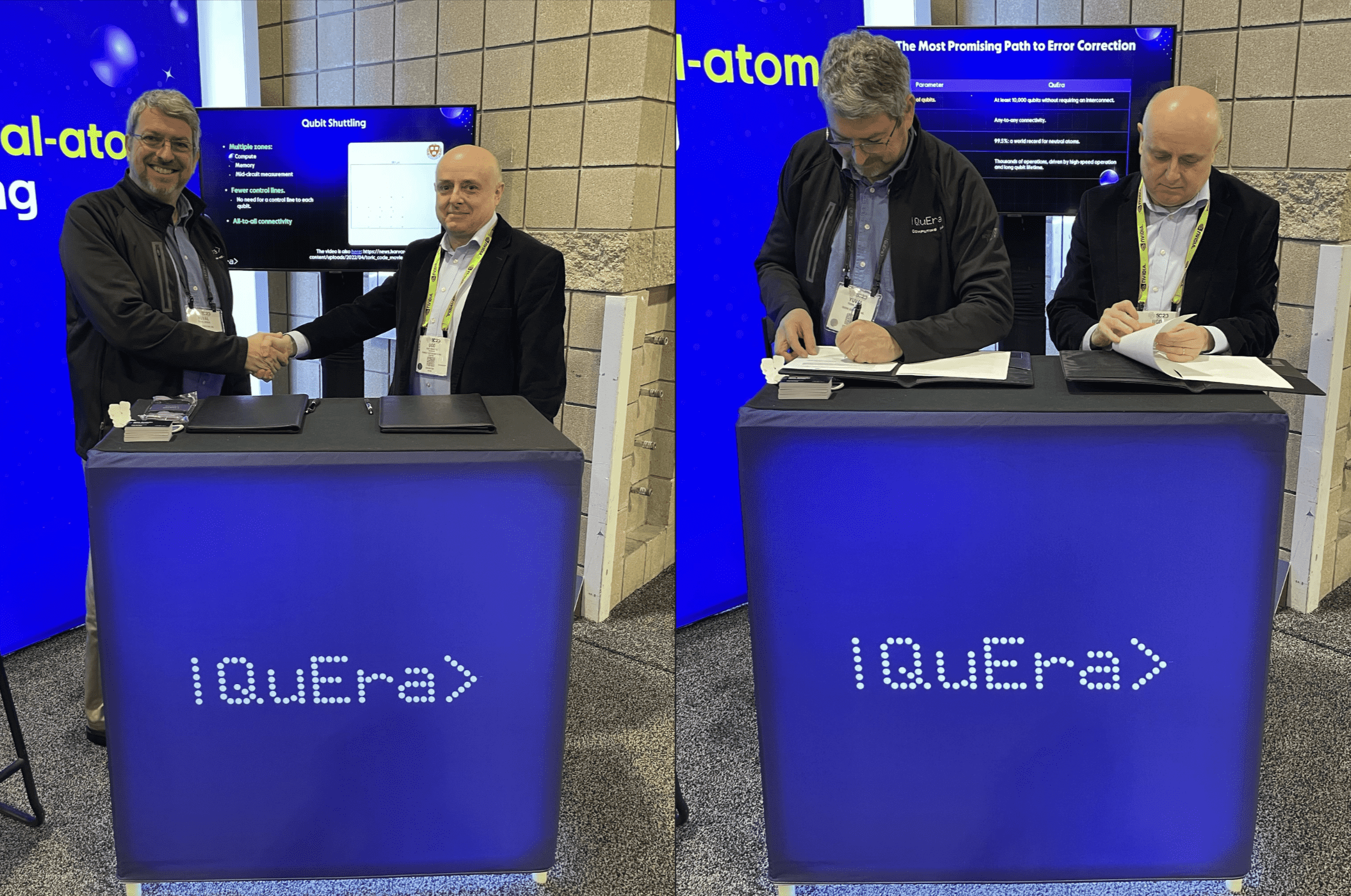Introduction
In a recent webinar hosted by Deloitte, a panel of experts discussed groundbreaking research conducted using QuEra's neutral atom quantum computer. The session provided insights into the intersection of quantum computing and machine learning, highlighting significant advancements and applications. This case study summarizes the key points discussed and the implications of these advancements for the future of quantum computing in various industries.
Webinar Overview
Esther Han, the host, introduced the session by outlining the agenda, which included an overview of quantum computing, a deep dive into QuEra's neutral atom quantum computing modality, and a presentation of research findings. The panel comprised Scott Bucholtz, Deloitte's global lead for quantum computing; Dan Beaulieu, a data scientist specializing in quantum AI and machine learning; Yuval Boger, Chief Commercial Officer at QuEra; and Milan Kornjaaca, a research scientist at QuEra.
Quantum Computing Fundamentals
Scott Bucholtz provided a foundational understanding of quantum technology, explaining that quantum mechanics governs the behavior of particles at subatomic levels. He highlighted three primary applications of quantum technology: computing, sensing, and secure communication. The focus of the webinar, however, was on quantum computing's potential to revolutionize machine learning.
Quantum Machine Learning (QML)
Scott explained the general process of machine learning, where data scientists develop and train models to produce insights. He emphasized that quantum machine learning could potentially train models to higher accuracy with less data than classical methods, which is a significant advantage. This set the stage for discussing QuEra's contributions to the field.
Interested in quantum machine learning?
Watch results from Deloitte
Watch the recording now
QuEra's Neutral Atom Quantum Computing
Yuval Boger introduced QuEra as a leader in neutral atom quantum computing, detailing the advantages of this approach. He explained that neutral atoms are nature's perfect qubits, scalable and operable at room temperature, unlike other modalities that require complex cooling systems. QuEra's 256-qubit quantum computer, Aquila, available on Amazon Braket, showcases these advantages.
Quantum Reservoir Computing (QRC)
Milan Kornjaca elaborated on QuEra's quantum reservoir computing (QRC) approach. He explained that QRC leverages the complex interactions and entanglement of qubits to perform computations that are infeasible for classical systems. This method allows for the processing of data with fewer resources and greater accuracy.
Case Studies and Research Findings
Dan Beaulieu presented several case studies where Deloitte applied QRC to solve real-world problems, demonstrating its efficacy and advantages over classical methods.
- Manufacturing Defect Detection:
- Deloitte's smart factory in Wichita, Kansas, used QRC to classify manufacturing defects in rover bodies produced by Lenco Toys.
- The QRC model achieved 99% accuracy, significantly higher than the 89% accuracy of the classical model.
- Medical Image Classification:
- QRC was applied to classify medical images, such as detecting pneumonia and differentiating various blood cell types.
- The QRC model outperformed classical models, achieving 93% accuracy for pneumonia detection and 33% higher accuracy for blood cell classification.
- Housing Price Prediction:
- Deloitte used QRC to predict home prices in Kansas City, demonstrating its capability in regression tasks.
- The QRC model had 18.7% less error compared to the classical approach, showing improved prediction accuracy.
Advantages of QRC
The panel highlighted several key advantages of QRC:
- Scalability: QRC can efficiently handle larger datasets and more complex problems as the technology scales.
- Ease of Use: The QRC approach simplifies the process of transitioning from classical to quantum machine learning, making it accessible for various applications.
- Performance: QRC consistently showed better performance in terms of accuracy and resource efficiency compared to classical methods.
Discussion and Future Prospects
The Q&A session addressed several pertinent questions about the practical applications and advantages of QRC. The experts reiterated that while QRC may not yet outperform highly specialized classical models, it offers a viable and efficient alternative for many machine learning tasks. They emphasized the potential for QRC to evolve and integrate seamlessly with classical methods, providing a hybrid approach that leverages the strengths of both paradigms.
Conclusion
The webinar demonstrated the promising future of quantum machine learning, particularly through the innovative use of QRC. QuEra's advancements in neutral atom quantum computing, combined with Deloitte's practical applications, underscore the transformative potential of this technology. Organizations interested in exploring quantum computing can benefit from the insights and resources provided by Deloitte and QuEra.
Further Information
For more details on Deloitte's quantum computing services and to access additional resources, visit their quantum computing website.
Watch a recording of the Webinar here.




